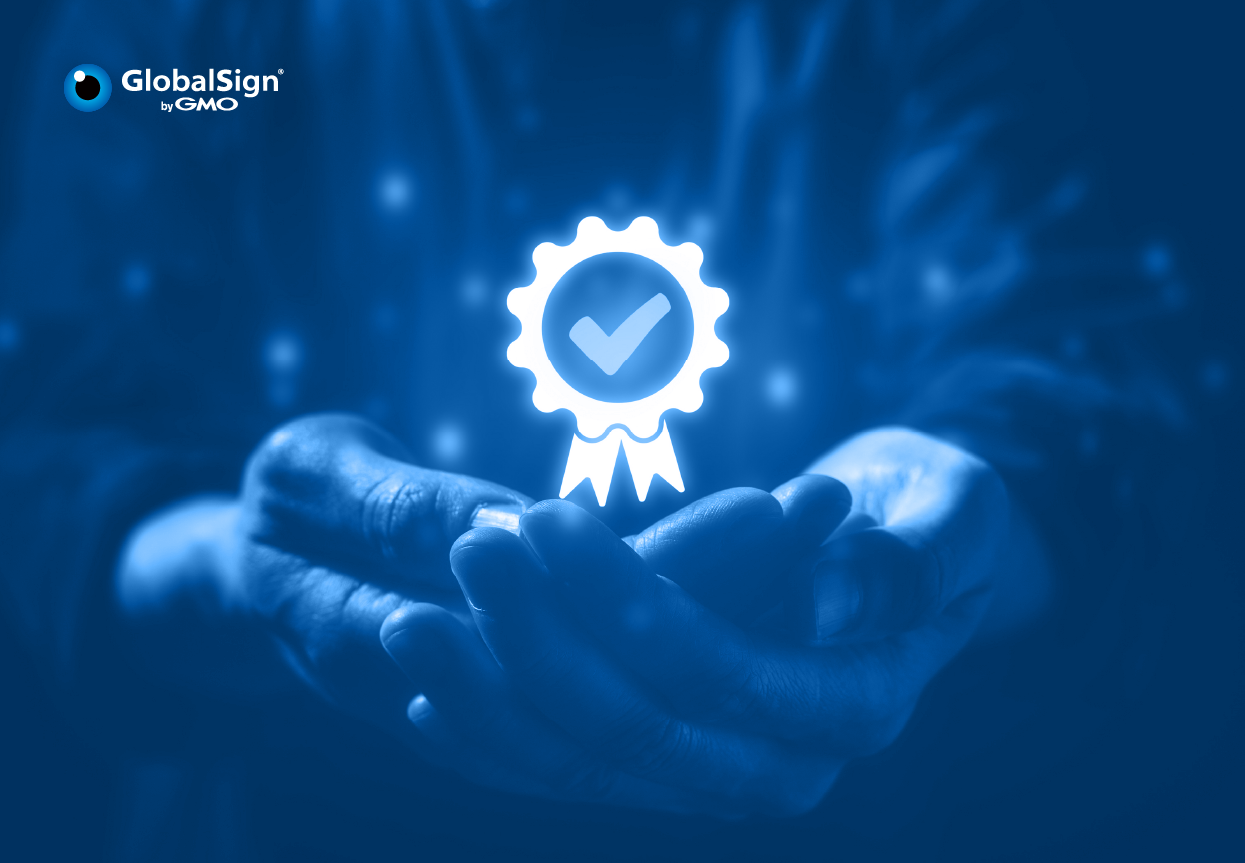It’s now 2023, and SSL certificates in Singapore have become an absolute necessity. Years ago, you could probably get away without having one. But nowadays, you cannot run a website with no SSL without facing repercussions. So why are SSL certificates so important in Singapore? Considering the unwanted dangers that technology occasionally introduces, Singapore has remained keen on improving its cyber security. At 5.81 million internet users, or 96.9% of the total population, Singapore has one of the highest internet penetration rates in the world. Knowing how connected all its people are, website security is vital.
Fundamentals of SSL in Singapore
Singapore, a tech-savvy hub, demands robust online security. SSL certificates, essential for encrypting data transmitted over the internet, are a staple in the city-state. With even just a 30-day SSL certificate, businesses in Singapore can quickly secure their websites, protecting sensitive information and bolstering customer trust. These certificates offer a temporary solution, ideal for short-term projects or websites in development. While they provide essential security, it's important to consider long-term options for sustained protection, especially for established online platforms.
What is an SSL Certificate in Singapore?
The Singapore cybersecurity market has recently seen an increase in activity, as vulnerable business owners seek some form of protection from unwanted and dangerous cybersecurity threats. For websites, one helpful tool to mitigate threats is the use of SSL certificates.
Imagine you're sending a secret message in a locked box. SSL (Secure Sockets Layer) is like the lock and key for your internet connection. It protects your data from nosy hackers by encrypting it into an indecipherable code. Only the intended recipient with the right key can unlock and understand the message.
So, when you're browsing, shopping, or banking online, SSL keeps your personal information safe, just like a sturdy lock keeps your house secure. For website owners, an SSL certificate in Singapore is an important factor in ensuring your website visitors experience a stress-free and private browsing session.
SSL Certificate Types in Singapore
To help ensure your website is protected and meets the demands of today's modern sites, we offer fully trusted X.509 SSL Certificates (RSA or ECC), a website/organization authentication and powerful encryption, and world-class 24/7 International Support. With 3 main certificate types to choose from, every business can be covered:
-
Domain validated (DV) – For websites that handle sensitive customer data and require a great deal of trust and security. This type is ideal for blogs and websites.
-
Organization validated (OV) – For websites that deal with less sensitive data but still require a degree of trust and security for visitors. This type is ideal for corporations, government, and entities.
-
Extended validated (EV) – for websites that handle sensitive customer data and require a great deal of trust and security. This type is ideal for e-commerce, large-scale corporations, and banks.
Overall, SSL certificates not only verify a website’s identity but also create an impenetrable shield of encryption. So, if you want to venture into the digital realm with confidence, make sure you equip yourself with an SSL certificate. It’s a useful tool to help websites battle against cyber threats.
What is an SSL Handshake
Think of an SSL handshake as a digital introduction. Your web browser and a website exchange encrypted greeting, verify identities with digital certificates, agree on a secret code, and securely communicate. This process ensures your online interactions are private and protected.
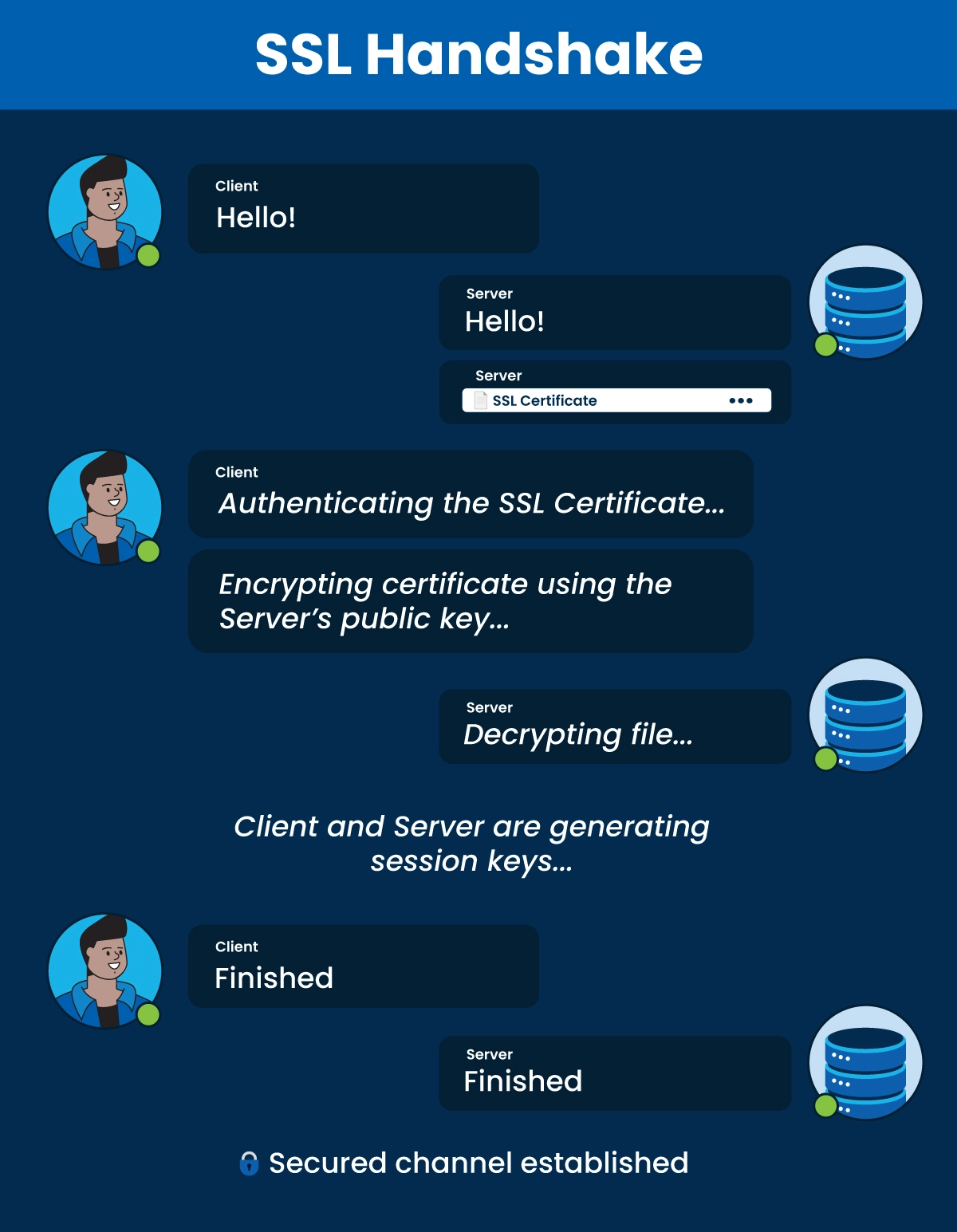
How to Check an SSL certificate in Singapore
To check for a website’s SSL, just follow these steps:
-
Open your web browser and navigate to the website you’d like to check.
-
Look for the padlock icon in the address bar and click on it.
-
Verify the certificate's validity by checking the following:
- Ensure the domain name matches the website you're visiting.
- Verify the certificate issuer (e.g., trusted CA like GlobalSign).
- Confirm the certificate's expiration date (should be valid).
-
Optionally, click on "View Certificate" or a similar option to examine more details like the certificate chain and encryption strength.
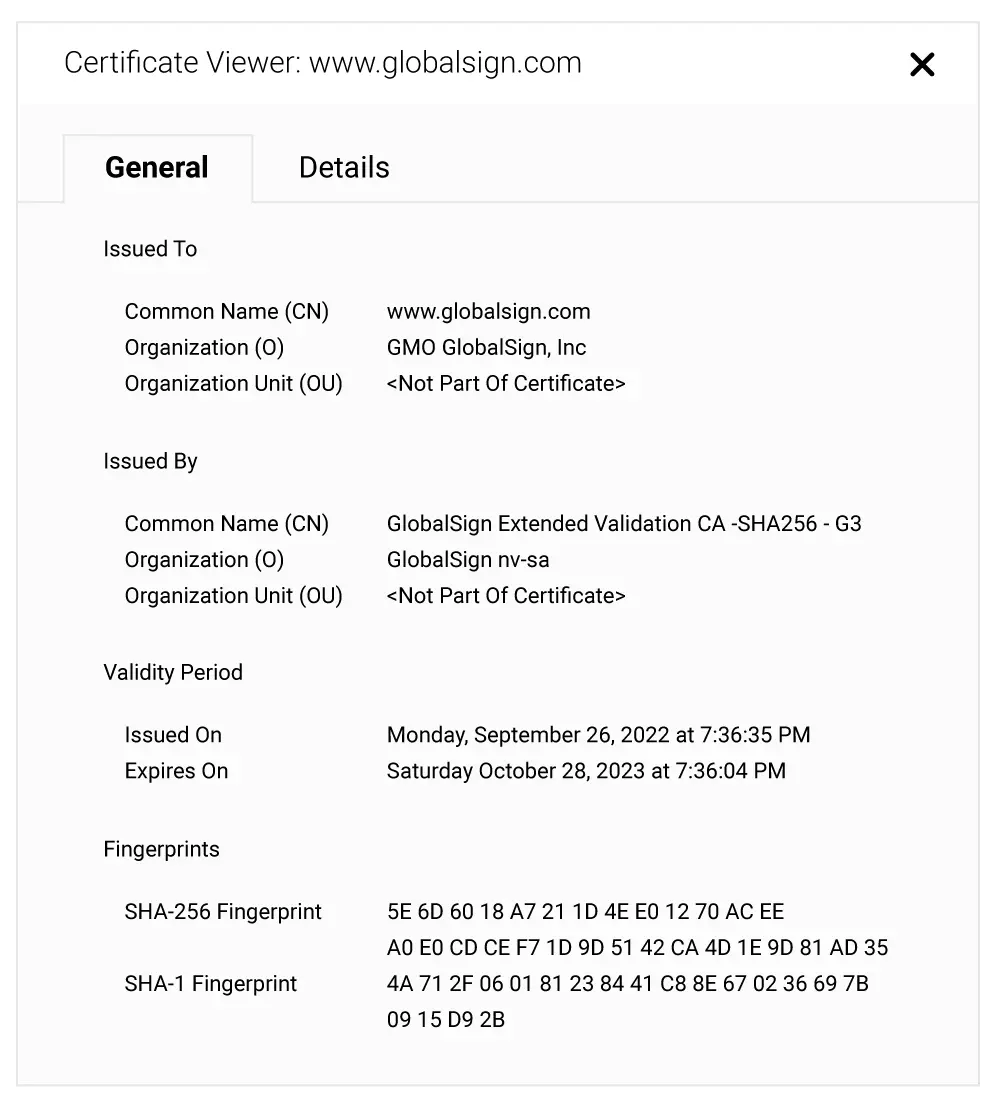
Sample SSL Certificate Details from www.globalsign.asia
Remember, an SSL certificate adds that extra layer of security, so always double-check to ensure your online activities remain protected!
SSL Certificate Checker
If you want to take a step further and examine a website’s SSL configurations, we have a free SSL certificate checker. Our SSL Configuration Checker is a handy online tool by Qualys SSL Labs.
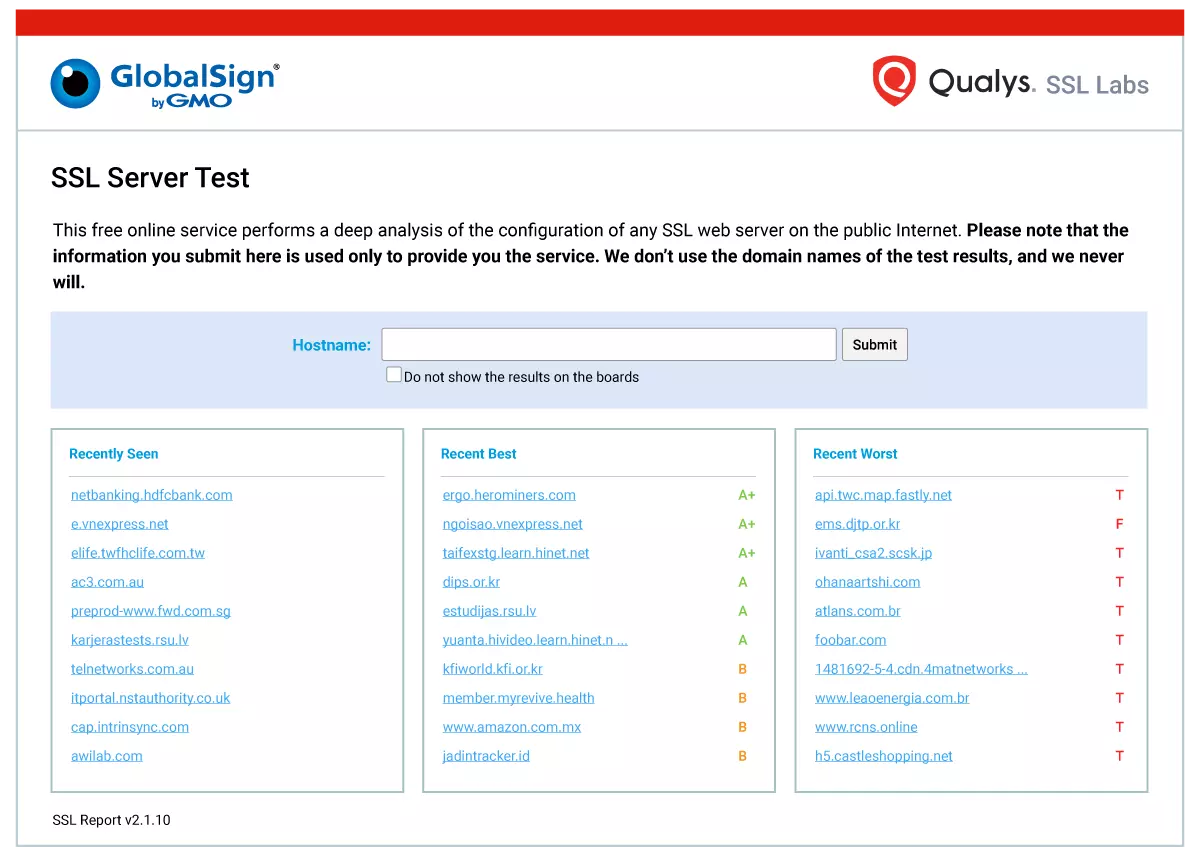
It lets organizations assess their websites' strengths and weaknesses by simply entering their domain URL and hitting submit.
Once you visit the tool, it examines your SSL certificate to ensure it's trusted and valid, giving a zero if it fails.
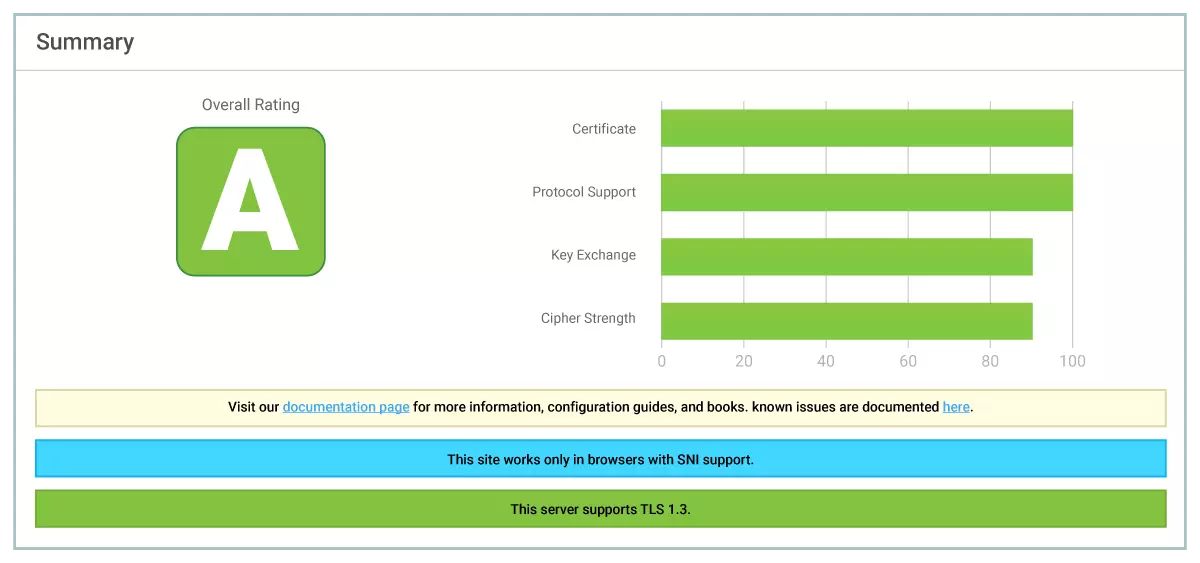
Then, it tests the server configuration in three categories: protocol support, key exchange support, and cipher support. Finally, it assigns a score from 0 to 100, giving you an overview of how well your site is configured. It's like a report card for your SSL setup!
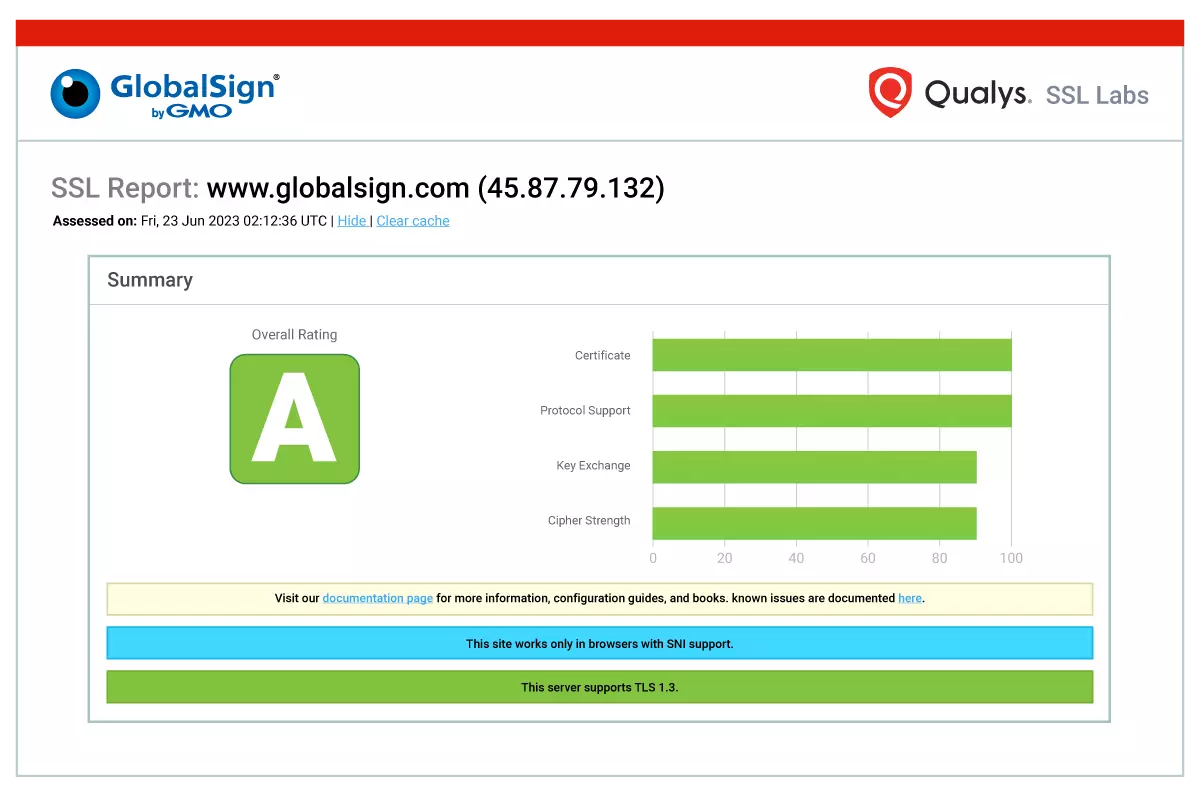
What is HTTPS
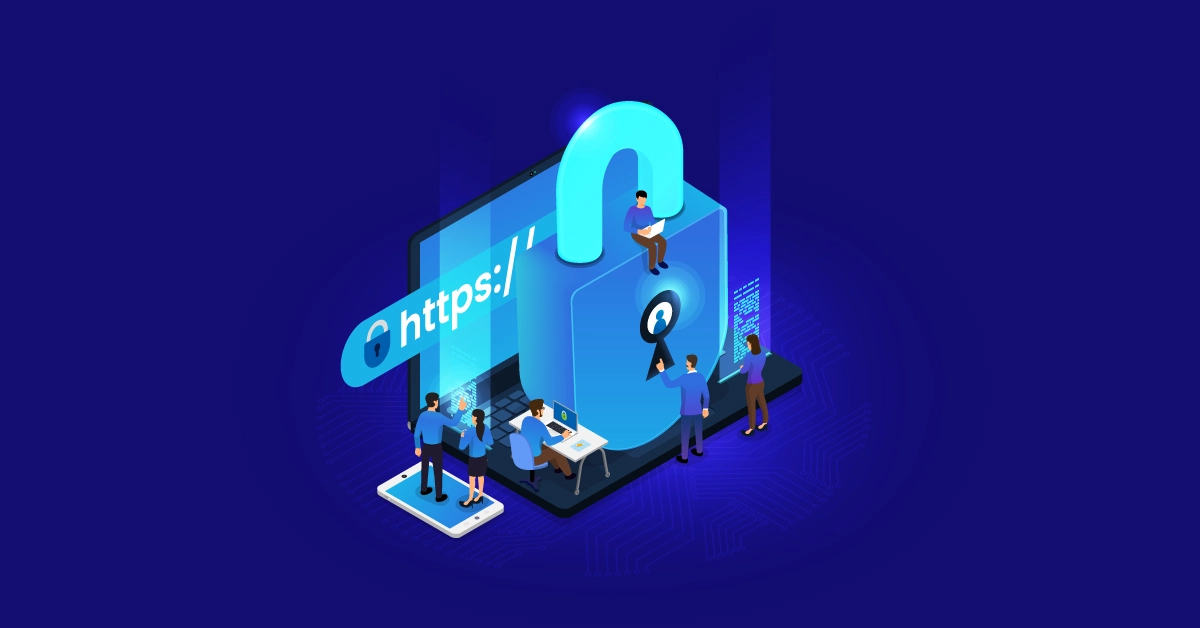
HTTPS and SSL certificates go hand in hand to provide a secure online experience. HTTPS (Hypertext Transfer Protocol Secure) is the secure version of HTTP, adding encryption to protect data transmitted between a user's browser and a website. When a website has an SSL certificate installed, it can establish a secure HTTPS connection, ensuring that data remains confidential and protected from unauthorized access. So, think of SSL certificates as the foundation that enables the secure connection provided by HTTPS.
SSL Certificate Changes in Singapore
The CA/Browser Forum and Root programs specify requirements that CAs must comply with and be audited against to provide uniform requirements across all CAs and to protect web site visitors by setting important compliance and security requirements. The most recent update of SSL certificates in Singapore was implemented last in November 2011, particularly the additional information about the prohibition of HTTP domain validation for issuance of subdomains and wildcards.
SSL validity period
According to the CA/B Forum's Baseline Requirements, the maximum validity period of an SSL certificate is currently 397 days, or approximately 13 months. However, following the meetings in early March 2023, Google stated its intention to reduce the maximum certificate validity to 90 days for all publicly trusted SSL certificates.
To check SSL expiry date
The easiest way to check for an SSL’s expiration date is by navigating through the web browser:
- Click the padlock icon in the address bar.
- In the pop-up box, click on “Valid” under “Certificate”.
- Check the expiration data.
For website owners, we make it easy to discover, analyze, and manage SSL certificates through our certificate management solutions.
Experience simplified deployments with Managed SSL
SSL 90 days
While there is not yet an effective date or deadline for this change, Google has released a survey to the Certificate Authorities (CAs) at the CA/B Forum and is requesting feedback on its stated plans. After that, it will likely announce enforcement dates for all its proposed changes. We will keep you posted as that situation develops.
While this plan is to ensure the safety and security of SSL certificates especially in Singapore, some organizations may find constantly renewing certificates a nuisance as this would be 3x more! The good news is, it is possible to completely automate certificate renewals with our latest Automatic Certificate Management Environment (ACME) solution for DV and OV certificates, so you never run the risk of website downtime and outages.
SSL Certificate Best Practices in Singapore
The Personal Data Protection Act (PDPA) is Singapore’s primary legislation governing the collection, use, and disclosure of personal data. It establishes rules for organizations handling personal data and outlines individuals’ rights in relation to their personal data. There is also the criminal procedure code which sets out the procedures and safeguards for criminal investigations, including those related to website security and interceptions. It includes provisions for the collection and admissibility of evidence obtained through electronic means, such as website interceptions.
Website security is paramount in today's digital landscape and the governing laws relating to data protection must be strictly followed. With cyber threats lurking around every corner, it's crucial to protect sensitive data and ensure user trust. By implementing SSL, websites can follow local legislations and provide a safe browsing experience, build customer confidence, and protect against data breaches.
Certificate Authority Singapore
We’ve discussed the importance of SSL certificates, but another important aspect of website security is obtaining SSL Certificates from trusted sources. Acquiring or buying SSL certificates in Singapore from reputable and trusted CAs ensures the validity and integrity of the certificates. This helps establish trust with users and avoids potential security warnings. With GlobalSign being one of the leading CAs in Singapore, our SSL certificates can ensure that information being shared in your website (such as personal details and credit card information and other personal identifiable information) cannot be intercepted.
GlobalSign offers the strongest encryption and competitive features to ensure your website is protected and is also one of the longest-standing CAs worldwide, with over 25 years of experience in the industry. With local support in Singapore, we're here to help you secure your website and build trust with your customers.
SSL Certificate Use Cases in Singapore
Personal Use Cases
-
Secure Online Shopping: SSL ensures the security of personal information, such as credit card details, during online purchases, giving your customers peace of mind while shopping.
-
Protected Social Media Interactions: SSL secures communication on social media platforms, safeguarding personal messages, login credentials, and other sensitive data from interception.
-
Secure Online Banking: SSL encryption secures online banking transactions, protecting users’ financial information and ensuring confidentiality during sensitive operations like fund transfers or accessing account statements.
-
Private Email Communication: SSL encryption helps protect email communication, ensuring that messages, attachments, and sensitive information remain confidential and secure during transmission.
Where to Find the Best SSL Certificates in Singapore | Enterprise Use Cases
SSL certificates are essential for businesses in Singapore looking to secure their online presence and protect sensitive customer data. Here are some key enterprise use cases for SSL certificates:
-
E-commerce Websites: SSL certificates in Singapore are particularly essential when it comes to secure online transactions, enabling businesses to securely process customer payments, protect customer data, and build trust.
-
Secure Customer Portals: SSL secures customer portals or self-service platforms, where users can access their accounts, update information, and perform secure transactions.
-
Secure Employee Login and Data Exchange: SSL ensures secure authentication and encrypted communication for employees accessing internal systems, VPNs, or exchanging sensitive information within the organization.
-
Online Service Providers: SSL is crucial for providers of online services, such as cloud platforms or software-as-a-service (SaaS) providers, ensuring the secure transmission of data between clients and their platforms.
-
Web Application Security: SSL secures web applications, protecting user input, login credentials, and sensitive data exchanged between the user's browser and the application servers.
These use cases demonstrate how SSL certificates are employed at both personal and enterprise levels to ensure secure communication, protect sensitive data, and build trust in online interactions in Singapore. For the best SSL certificates in Singapore, look no further than GlobalSign. We offer a wide range of options to suit your specific needs. With GlobalSign, you can be confident that your website is protected by the most trusted and reliable SSL certificates available.
Buy SSL Certificate Singapore: Boost Trust and Security
As a website owner, how can you ensure that visitors trust your site and their sensitive information is secure?
CAs issue digital certificates that validate the authenticity and identity of your website. These certificates are like stamps that assure visitors that your site is legit and safe.
How GlobalSign Can Help
How Certificate Authority Can Help
As a website owner, how can you ensure that visitors trust your site and their sensitive information is secure?
CAs issue digital certificates that validate the authenticity and identity of your website. These certificates are like stamps that assure visitors that your site is legit and safe.
When you obtain an SSL certificate from a reputable CA like GlobalSign, you're enlisting an accredited entity to vouch for your website's credibility. This endorsement builds confidence in your visitors, encouraging them to share their information, engage with your content, and ultimately become loyal supporters.
GlobalSign SSL
To help ensure your website is protected and meets the demands of today's modern sites, we offer fully trusted X.509 SSL/TLS Certificates (RSA or ECC), a website/organization authentication and powerful encryption, and world-class 24/7 International Support. With 3 main certificate types to choose from, every business can be covered:
- Domain validated – For websites that handle sensitive customer data and require a great deal of trust and security. This type is ideal for blogs and websites.
- Organization validated – For websites that deal with less sensitive data but still require a degree of trust and security for visitors. This type is ideal for corporations, government, and entities.
- Extended validated – for websites that handle sensitive customer data and require a great deal of trust and security. This type is ideal for e-commerce, large-scale corporation, and banks.
Overall, SSL/TLE certificates not only verify a website’s identity but also create an impenetrable shield of encryption. So, if you want to venture into the digital realm with confidence, make sure you equip yourself with an SSL certificate. It’s a useful tool to help websites battle against cyber threats.
With GlobalSign being one of the leading CAs in Singapore, our SSL certificates can ensure that information being shared in your website (such as personal details and credit card information and other personal identifiable information) cannot be intercepted. Contact us today and one of our representatives will be in touch as soon as possible.





